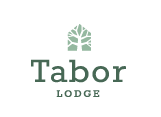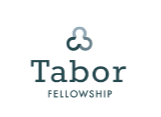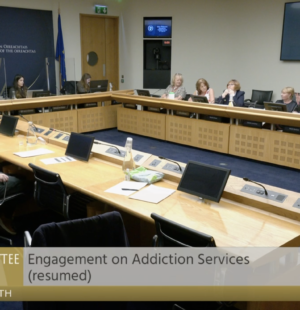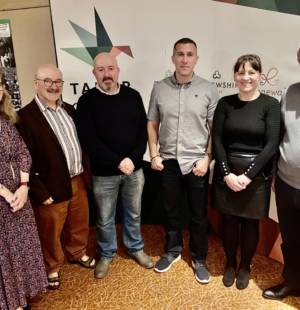Is there a role for counselling in the treatment of addiction? – Part 2
In part one of this series of blogs, Mick Devine Clinical Director Tabor Group discusses the role for counselling in the treatment of addiction and in todays blog he continues this discussion.It is my experience however, that counselling really comes into its own when the service user responds to the challenge of establishing a drug free lifestyle as central to managing addiction. This can be an extremely difficult task but not impossible. The following will hopefully portray the nature of the difficulty and also demonstrate how success is possible when counselling is fully utilised.
Disease Concept of Addiction In her preface to National Institute of Drug Abuse 2010 publication, Drugs Brains and Behaviour, Nora Volkov MD, Director of National Institute of Drug Abuse recalls that when science began to study addictive behaviour in the 1930s, people addicted to drugs were thought to be morally flawed and lacking in willpower.
We now know addiction is a disease that affects the brain (National Institute of Drug Abuse, 2010). While the ‘disease concept’ of addiction seems to confirm that the lead agents in its treatment should be medical, it is this disease concept which appears to most securely establish the role of counselling in its treatment. To elaborate the point it is useful to present a definition of addiction issued by The American Society of Addiction Medicine (short version) (ASAM,Web 2011): Addiction is a primary, chronic disease of brain reward, motivation, memory and related circuitry. Dysfunction in these circuits leads to characteristic biological, psychological, social and spiritual manifestations. This is reflected in an individual pathologically pursuing reward and/ or relief by substance use and other behaviours (Home Page).
Definition of Addiction
Addiction is characterised by inability to consistently abstain, impairment in behavioural control, craving, diminished recognition of significant problems with one’s behaviours and interpersonal relationships and a dysfunctional emotional response. Like other chronic diseases, addiction often involves cycles of relapse and remission. Without treatment or engagement in recovery activities, addiction is progressive and can result in disability or premature death (Home Page).
There are many elements of this rich definition which provide food for thought when considering the question of the role of counselling in the treatment of addiction. However I will highlight three elements;
- That addiction is a ‘chronic disease’,
- That addiction is a ‘chronic brain disease’ and
- That addiction is characterised by a diminished recognition of significant problems of one’s behaviour and interpersonal relationships and dysfunctional emotional response.
Addiction is a chronic disease
To establish the nature of a chronic health condition it is useful to contrast it with an acute health condition. White (2003) outlines that acute health conditions are of sudden onset and short duration; symptoms appear suddenly and the pain is insistent. Additionally he argues that immediate care is required and is usually clearly defined, administered by an expert using surgery or medication and brings about a cure. Examples are infection, appendicitis and a broken bone. Acute health conditions, he says, are seen to be something that happens to a person. White (2003) contrasts this with a chronic health condition which he says is persistent and long lasting, usually more than three months. He says that the onset is gradual and the condition may be characterised by periods of remission and relapse. Furthermore, the condition may not insist on attention until well progressed. He contends that the condition is managed rather than cured and the participation of the ‘patient’ is central to the successful management. Insight, for White, is a crucial component of the recruitment of the patient in the management of the condition. Examples of chronic health conditions are diabetes, hypertension and heart condition. Chronic health conditions, he concludes, are seen to be physiological defects in the person. Considering addiction as a chronic condition and that the individual must be actively involved in the management of their addiction creates an opening for the inclusion of counselling in this process.
Management of a chronic health condition
The management of a chronic health condition such as diabetes also requires the active involvement of the person but counselling is not usually required to secure the person’s engagement as the organ affected is the pancreas. Once the person has the insight that their pancreas is dysfunctional in the production of insulin and the patient needs to assist its functioning, they are generally recruited to the enterprise of managing the diabetes. In the case of addiction however it is the brain that is affected. The person’s identity is centrally bound up with the brain because, while the pancreas produces insulin, the brain produces our thoughts, feelings, instinctual motivations, decision making apparatus and other functions central to all that establishes us as an individual. (Hanson & Mendius, 2009).
Addiction is a brain disease. ASAM (2011) states that in addiction vital brain functions are impaired;
- Reward circuits,
- Motivation and memory circuits and
- The executive function of decision making.
The reader is referred to the full text of this rich definition for the following observations.
Firstly, if drugs enhance reward function then drug using is preferred to other healthy behaviours (Koob & Moai, 2001). The person is therefore more motivated for drug use than for other activities which the brain also rewards. Such activities include those which ensure safety and security, maintenance of interpersonal relationships, stable accommodation, successful occupation or student career.
As far as the brain knows the drug use satisfies these needs. Over time such altered priorities for drug use lead to a lifestyle that is unsuccessful, frustrating and characterised by agitation and negativity (Keane, 2014). Secondly, the repeated engagement in drug use leads to neuro adaptation in the motivational circuitry which leads to further addictive drug use hence the individual is motivated towards further drug use. In other words, the positive reinforcement of the euphoria obtained from drug using and the negative reinforcement of the relief from negative emotional states conspire to reinforce the motivation for continued drug use. Additionally, memory circuits play a role in addiction as memories of previous drug use trigger cravings to resume use in their current situation (Koob & Moai, 2001).
Centre with the power to think
Finally, the frontal cortex of the brain is charged with executive functioning. Therefore, it is the centre with the power to think, solve problems and make decisions and when it becomes affected by addiction the person’s decision making capacity is impaired. Examples of such impairment include powers of perception, learning and judgement being compromised as well as the ability to defer gratification as impulsivity is strong. Furthermore, the person can make many mistakes when it comes to deciding if it is a good decision to use drugs. The ability to choose to avoid using is compromised by the strength of the craving to continue using, the strength of the reward obtained from using, and the positive memory of previous use. Therefore the situation is out of the person’s control and it is not realistic to expect choices to be made according to conventional value hierarchies. Despite the negative consequences that inevitably come with impairment of executive functioning the person shows a low readiness to change (Koob & Moai, 2001). As part of the treatment programme at Tabor Lodge clients are encouraged to learn about addiction and apply the learning to their own real-life situations. The ASAM definition in its long and short versions is used. The Diagnostic and Statistical Manual of the American Psychiatric Association Edition V is also used.
Treatment
From many clients undergoing the treatment programme the following reflections are possible. The addicted person cannot see the reality of their situation. The shame, guilt, failure and suicidal tendencies associated with addiction are defended against by the person. They do not recognise significant problems as such. The dysfunctional emotional response causes them to minimise the extent of their difficulties and disadvantage. They may become detached from their difficulties by being overly intellectualising. It causes them also to disregard, diminish or explain away the problems in inter-personal relationships. Alternatively, the dysfunctional emotional response may cause them to exaggerate their difficulties resulting in their anger and aggression, blaming, resenting, or self-pitying and hopelessness. They adapt to accommodate themselves to their diminished circumstances and to avoid being confronted by the difficulties addiction is causing. Accommodation may take the form of developing a false self which has an insistence that ‘all is well’.
Addicted people may become avoidant and distant and lose real contact with meaningful others. Clients often acknowledge that changes occur both in cognitive and affective functioning. For example, the person is preoccupied with drug use, has a distorted view of the benefits of using and can attribute unwanted consequences to other causes than the drug using. Emotionally there is increase in anxiety and sensitivity to stressors. Furthermore, the client comes to see that there can also be emotional overreaction and under reaction. This may include emotional responses which are inappropriate for the situation such as an aggressive reaction to a child making a mistake and spilling milk or at another time showing no reaction to an inability to pay an important household bill. The client can become crisis prone. Failures and set backs are inevitable.
Social and personal support network is weakened
Over time the addicted person burns their bridges and their social and personal support network is weakened. It is harder for them to bounce back. If the person is the parent in a family unit the impact on all the family is devastating, particularly on children. As the situation spirals out of control the person’s ability to cope with stressors is overwhelmed. The resulting sense of panic increases cravings to continue using. Drug using is the main coping strategy and so the person has nowhere to turn. Stressful situations mount and escalate. In response the person becomes more defensive. The person is unable or unwilling to take corrective action. The person’s self deception is significant.
In the final blog on this series of Is there a role for counselling in treatment, Mick Devine Clinical Director Tabor Group will discuss what has led him to believe that it is very difficult to separate the impact caused by the addiction from that caused by the contribution of the person themselves;
Tabor Group
Tabor Group is a leading provider of residential addiction treatment services in Ireland. We provide support and care to hundreds of clients each year suffering from addictions to alcohol, substances, gambling and food. Tabor Group offers hope, healing and recovery to addicted people and their families through integrated and caring services. For more information on Tabor Group’s services Click Here
Get Help at Tabor Group
If you or a loved one are suffering from an addiction to Alcohol, Drugs, Gambling or Food get help today. We can help you recover in a healthy, friendly environment and beat your addiction. Don’t hesitate to contact one of our counsellors today at +353 (21) 488 7110 or Email Us and we can help you
With the right support, you’ll never have to make another uneducated life and death decision for your addicted loved one again
Recent Posts
- How to Help a Loved One Struggling with Addiction
- Tabor Group Calls for Urgent Funding to Address Growing Addiction Crisis
- Forgiveness in Recovery
- National Drugs Strategy launches interactive map to facilitate access to 442 publicly-funded drug treatment
- Statement from Colette Kelleher, CEO Tabor Group
Categories
Archives
- September 2024
- July 2024
- June 2024
- January 2024
- December 2023
- August 2023
- July 2023
- May 2023
- April 2023
- March 2023
- January 2023
- October 2022
- September 2022
- August 2022
- July 2022
- June 2022
- May 2022
- April 2022
- March 2022
- February 2022
- January 2022
- December 2021
- November 2021
- October 2021
- September 2021
- August 2021
- July 2021
- June 2021
- May 2021
- April 2021
- March 2021
- February 2021
- January 2021
- December 2020
- November 2020
- October 2020
- September 2020
- August 2020
- July 2020
- June 2020
- May 2020
- April 2020
- March 2020
- February 2020
- January 2020
- December 2019
- November 2019
- October 2019
- September 2019
- August 2019
- July 2019
- June 2019
- May 2019
- April 2019
- March 2019
- February 2019
- January 2019
- December 2018
- November 2018
- October 2018
- September 2018
- August 2018
- July 2018
- June 2018
- May 2018
- April 2018
- March 2018
- February 2018
- January 2018
- December 2017
- November 2017
- October 2017
- September 2017
- August 2017
- July 2017
- June 2017
- May 2017
- April 2017
- March 2017
- February 2017
- January 2017
- December 2016
- November 2016
- October 2016
- September 2016
- August 2016
- July 2016
- April 2016
- March 2016
- December 2015
- March 2015












